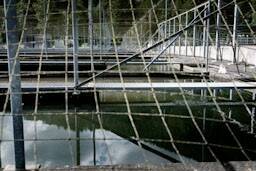Submitted by Wild Fish Conservancy
Wild Fish Conservancy and The Conservation Angler filed suit against federal, state, and local governments under the Endangered Species Act to protect threatened wild fish and their ecosystems from hatchery programs in the Columbia River below Bonneville dam. These parties continue to fund and operate hatcheries under the Mitchell Act and Select Area Fishery Enhancement programs while exceeding limits under the ESA designed to prevent extinction of imperiled wild salmon and steelhead.
The complaint filed today in Washington’s Western District Court details how hatchery management under these programs is negatively impacting threatened and endangered Chinook, coho, and chum salmon, as well as steelhead, and Southern Resident killer whales whose survival depends on the protection and long-term recovery of wild salmon populations. Harm to ESA-listed species and their critical habitats occurs through a variety of ways, including genetic and ecological interactions, harvest impacts, facility effects, fish removal activities, and others.
Congress enacted the Mitchell Act in 1938, in an attempt to counteract the adverse effects of habitat degradation, dam building, and overharvest in the Columbia River Basin. The SAFE program was developed in 1993 to provide salmon and steelhead for dwindling in-river fisheries. As wild populations continue to decline across the Pacific coast, production under the Mitchell Act and SAFE program is used as justification by fisheries managers to avoid curtailing unsustainable harvest levels in ocean fisheries from Oregon to Alaska. Today, NMFS, both the funder and the regulatory agency of these programs,recognizes hatcheries and harvest as two of the leading threats to wild salmon and steelhead.
In 2016, Wild Fish Conservancy sued the National Marine Fisheries Service (NMFS) over these same hatchery programs to force them to comply with the ESA when funding and authorizing Mitchell Act hatcheries. As a result of that successful litigation, NMFS developed a Biological Opinion on Mitchell Act hatcheries that set limits and standards to prevent the extinction of already at-risk wild salmon and steelhead.
Today’s complaint details NMFS’s consistent failure to comply with critical terms and conditions of their biological opinions for both the Mitchell Act and SAFE hatchery programs in tributaries throughout the lower Columbia River in Washington and Oregon. Most concerning, these hatchery programs are seriously exceeding federally mandated limits for the number of hatchery fish reaching wild spawning grounds and breeding with wild salmon. The complaint also challenges the agency’s present approach of utilizing weirs, which have demonstrated ineffectiveness at reducing the proportion of hatchery fish and which obstruct the migration of wild salmon, further undermining recovery.





